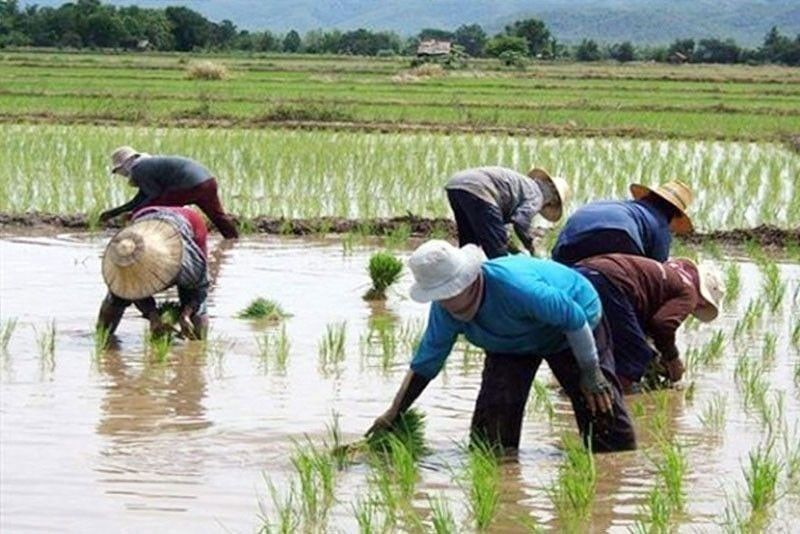‘Rice farmers to lose P33 billion from lower tariffs’

MANILA, Philippines — Local rice farmers stand to lose P33 billion if the tariffs on imported rice are further reduced, as this is expected to translate to lower farmgate prices, an industry group said.
The Federation of Free Farmers (FFF) expressed “vehement” opposition yesterday regarding the plan of the government to cut rice tariffs further to pull down retail prices of the staple.
The group said farmgate prices may decline by P3 per kilogram as a result of the “dumping” of imported rice in the wholesale market due to the P5 per kg reduction in tariff payments.
The group noted that the country harvests about 11 million metric tons (MMT) of palay or unmilled rice during the second half of the year, which is expected to be affected by the lower rice tariff rates. This, the FFF claimed, may lead to losses of P33 billion.
The FFF also said the government would be foregoing P10 billion in tariff revenues because of the lower tariff rates. Earlier, the Department of Finance (DOF) disclosed that the government plans to reduce rice tariffs further to arrest rice inflation in the country.
A finance official said the DOF is looking at a rice tariff level of around 15 to 20 percent, compared to its present rate of 35 percent.
In fact, the prevailing tariff of 35 percent on rice imports is already an extended lowered rate as part of the government’s counter-inflation measures. Without any tariff reductions, the government imposes a 40 percent and 50 percent tariff on rice imports within and outside the minimum access volume, respectively.
However, any rice imports that come from ASEAN member-states are levied with a 35 percent tariff regardless whether they are in-quota or out-quota pursuant to the ASEAN Trade in Goods Agreement.
The FFF cautioned that any further reduction on rice tariffs may not guarantee lower retail prices, citing previous tariff cuts.
More so, the previous tariff reductions failed to expand the country’s supplier base for rice, since non-ASEAN countries accounted for less than four percent of total imports last year, according to the group.
“When the government reduced tariffs on non-ASEAN rice imports from 50 percent to 35 percent starting in May 2021, rice retail prices actually rose, instead of going down,” the FFF said.
“Savings from lower tariffs were simply pocketed by importers and middlemen and were not passed on to consumers,” the FFF added.
- Latest
- Trending
























